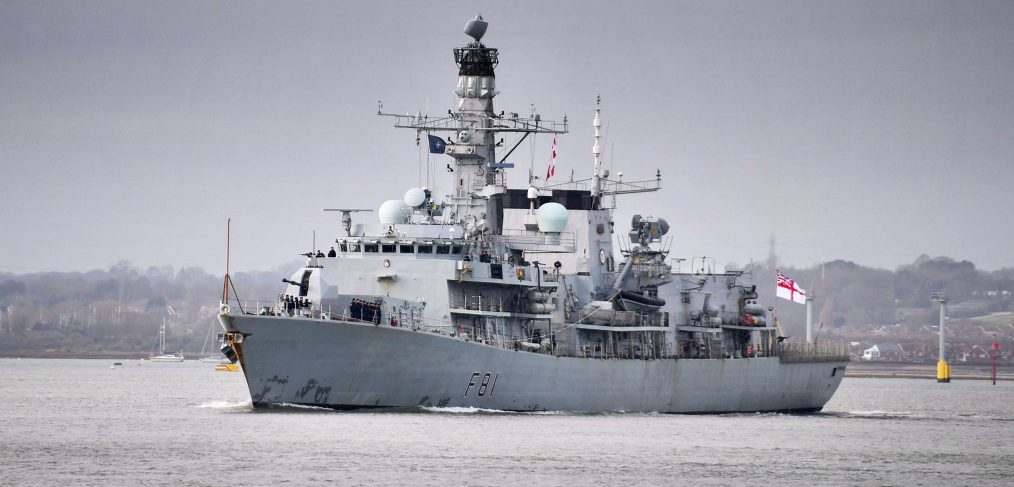
As the global coronavirus pandemic has begun to impact all aspects of life in the UK, this is a brief update on how the RN is responding to the crisis.
Operational
At the sharp end, the RN is delivering as normal and says its priorities of maintaining the Continuous At Sea (nuclear) Deterrent, Gulf operations (Kipion) and protection of UK waters are not affected. At sea, crews are naturally isolated from in the general population, but should infection break out in a ship or submarine it tends to spread rapidly. Fortunately, the workforce does not include those at high risk from Covid-19 and young, fit people are likely to recover rapidly. The RN says no cases have been confirmed on any vessels at sea although it notes that testing is not (yet) being carried out.
Social distancing
While operationally things are relatively normal for now at least, they are, of course, entirely dependent on a long tail of infrastructure and support ashore. The RN is acutely aware it must carefully balance the needs of the nation with the safety of families and other civilians. On land it is following government guidelines on hygiene and isolation as closely as it can. Efforts to ensure the service will remain resilient and keep meeting its tasking are ongoing, even if some personnel should become infected. Shore establishments remain open but people are being asked to work remotely where possible and non-essential and family visits have been stopped. Teams are being divided into watches so that should one member become infected, the other watch/watches can take over. Assembling large groups of people together is being avoided but shoreside support and the dockyards continue to operate.
MACA
As yet the government has not made a formal request for Military Aid to the Civil Authorities (MACA). All three are forces are mandated to be ready to respond to such a request, should regular civilian capacity become overwhelmed. This would normally be in the form of additional manpower or expertise. A variety of contingency plans are always kept in place but the RN says it is further reviewing plans for how it may assist the government in this situation if called upon.Work is going on across the Defence Medical Service (DMS) to see how best to assist the NHS. The DMS comprises of 11,200 service personnel (7,600 regular and 3,600 reserve) and 2,200 civilian personnel but a very large percentage are already seconded to the NHS on a routine basis. There are some, but not large numbers of military medics readily available to boost the hospital workforce. Separate military hospitals ceased to exist by the mid-1990s as it was hard to justify their cost as forces numbers declined and it was felt that military medics would benefit from integration with the NHS. This kind of spare capacity that would be so helpful in times of crisis is typical of the kind of contingency and reserves that have been continually drawn down in an endless round of defence cuts since the end of the Cold War. The DMS posses 35 breathing ventilators which are likely to become in very short supply soon and it has made them available to the NHS.
Cold Response
The pandemic has impacted various exercises and events. The annual Maritime Combat Power Visit at Portsmouth Naval Base, that sees various military personnel from around the world and UK defence observe the navy in action, has been cancelled. The RN says it will continue to review future events ‘on a case by case basis’. A major NATO Exercise, Cold Response 2020 held in Norway was supposed to run between 2 – 18 March but was terminated early on 11 March by the Norwegian government as there we a number of suspected coronavirus cases amongst troops. RN participants HMS Albion, Sutherland and RFA Lyme Bay are returning home but around 900 Royal Marines are being kept on in Norway to continue training in relative isolation in the remote Arctic for a few more weeks.
Like everyone else, the RN is being led by government and scientific advice with many unknowns about how the pandemic will play out and how long it may last. Defence of the realm must continue and it is always possible that a global crisis could be exploited by our adversaries. The Commons Defence Select Committee meeting held yesterday seemed to endorse the view that the current Integrated Defence Review will probably be deferred for at least a year. Besides the psychological and emotional impact on the public as a whole, COVID-19 will see an upheaval in the public finances and likely have a very significant effect of defence planning in the next few years. While all sensible precautions are being taken in the face of an unprecedented situation, the message is to keep calm and carry on.

Comments on Mostly business as usual for the Royal Navy in the face of COVID-19 crisis